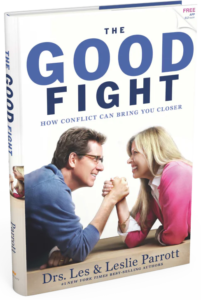
Part 3; Friendship: Are You Willing to Pay the Price?
Below are additional resources, links, tools, and expanded notes to supplement the sermon preached by Rob Blair at Harbour Shores Church on Sept. 18th, 2022.
“Greater love has no one than this, that someone lay down his life for his friends.” – John 15:13
As we hear our Savior’s words, we know Jesus must be referring to Himself; how in a short while, He would sacrificially lay His own life down on a Roman cross, in order to redeem those whom He would call His “friends” just 2 verses later (Jn. 15:15).
And yet, like our Savior, there are many who have been willing to pay “the ultimate” price by putting themselves in “harm’s way” for the sake of others. While most of us will never have to “take a bullet”, “run into a burning building” or physically die for our family or friends, there is still a “laying down” of one’s own wants, desires, and preferences for the sake of others which we are all called to — whether as a married couple, parents and children, employees and bosses; one for another.
In his book “Made for Friendship”, pastor/author Drew Hunter lays out over 2 dozen forms of relational “currency” which we can invest in deeper biblical friendships. He presents these in very practical, every day ways which he covers in chapter 5 of his book. They are;
Throughout chapter 5 of his book on biblical friendship, the author shows his shepherd’s heart by listing some practical ways one can begin cultivating, or paying the downpayment for developing deeper friendships. Here they are listed together;
The above is excellent material, from Drew Hunter on the price we pay for pursuing deeper friendship with others. And yet, even with 15 excellent points along with 2 dozen practical suggestions and ideas on how to restore biblical friendships, there is one more I would like to emphasize. It comes from Les & Leslie Parrott who have put it this way…
“Conflict is the currency we pay for deeper intimacy, when we work though it together.”
 If there is a couple who knows about how to use conflict as currency for deeper relationship building, it’s the Parrotts. They’ve even written a book about using conflict to create closeness called “The Good Fight” as well as having developed the relationship assesment website on building better marriages before they even start called SYMBIS (Saving Your Marriage Before It Starts).
If there is a couple who knows about how to use conflict as currency for deeper relationship building, it’s the Parrotts. They’ve even written a book about using conflict to create closeness called “The Good Fight” as well as having developed the relationship assesment website on building better marriages before they even start called SYMBIS (Saving Your Marriage Before It Starts).
The price for deeper friendship is our willingness to work through conflict when it arises. This may seem incredibly basic, but it is crucial.
By nature, most people are non-confrontational and tend to avoid conflict as much as possible. We can even “side step” or deflect it by saying “it’s no big deal” when in reality, we haven’t dealt with it and it has (as Les puts it) “…a high rate of resurrection.” The Parrot’s warn that when we avoid chaos/conflict, we may actually be missing out on one of the greatest tools God has designed to actually bring us into closer relationship. And it is called mutual conflict resolution.
Below is an audio message from Les & Leslie. Although it was originally directed towards married couples (which likewise should also be the best of friends), all of the principles apply to any relationship. The currency of mutual conflict resolution works with anyone with whom we experience, difficulty, trials, disagreements, opposing wills, etc. When both parties are willing to work through conflict together, they will be closer on the other side of the relational storm, than if they never went through it all. The Parrotts also offer several conflict resolution tools in the message below.
2 Conflicts: a.) Intrapersonal b.) Extra-personal
3 Friendships: 1.) Jesus & Us; FOUNDATION of all biblical friendships (Eph. 2:11-22)
2.) Jonathan & David; FORMATION of a biblical friendship (1 Sam. 18:1-4)
3.) Paul & Barnabas (& Mark); FORGING biblical friendships (Acts 15:36-39)
Call to Action: …into the Storm
1 The Lord is my shepherd; I shall not want. 2 He makes me lie down in green pastures. He leads me beside still waters. 3 He restores my soul. He leads me in paths of righteousness for his name’s sake. 4 Even though I walk through the valley of the shadow of death, I will fear no evil, for you are with me; your rod and your staff, they comfort me. 5 You prepare a table before me in the presence of my enemies; you anoint my head with oil; my cup overflows. 6 Surely goodness and mercy shall follow me all the days of my life, and I shall dwell in the house of the Lord forever.